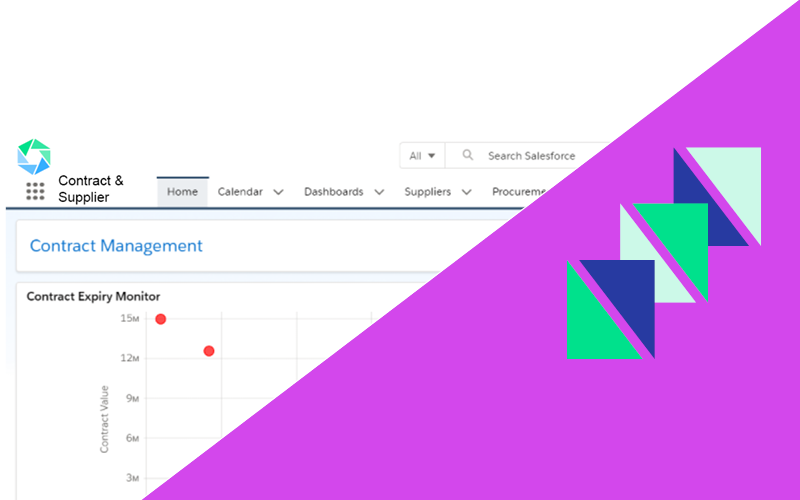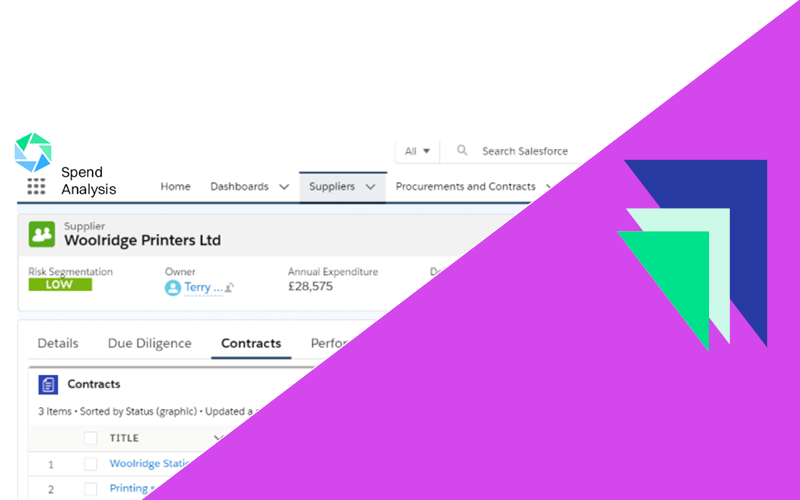The effect of coronavirus on the supply of goods and services is a trending news topic around the world. In the UK, we’re only starting to feel the full impact of the pathogen. But like other countries, school closures, bans on large events and the enforcement of travel restrictions are likely to happen soon – all of which impact not only on the delivery of goods that pass through affected countries, but also on all services.
In China, February saw the worst month ever for the services sector. Business activities ground to a halt as travel restrictions kicked in and coronavirus hit workforces and their supply chains.
We can expect similar in the UK. Restrictions on movement will be a significant obstacle to service providers, for example, waste management or catering services to the NHS, or IT services to the utilities sector to name just a few. Periods of quarantine and staff sickness are likely to cause labour shortages which will also cause disruption.
Despite the speed and scale of the emerging crisis, there are still measures organisations can take to manage the disruption.
Review critical contracts
Many service providers won’t be able to meet their contractual commitments when the virus hits them and their supply chain. If they – your suppliers – use a contract management system themselves, they will have clear visibility of their own supply contracts and their risk profiles. Businesses need to consider the legal consequences of not meeting their obligations.
Check your contractual obligations with your suppliers. It will help you prioritise your actions when dealing with the crisis. For example, it would be sensible to review contract terms and assess the risk impact for:
· Key or strategic contracts in your highest risk segment, e.g. gold contracts
· Contracts that relate to goods categories in high demand such as Personal Protective Equipment (PPE)
· Contracts that relate to, or are dependent on, travel or accommodation categories
· Contracts which include substantial penalties for late or non-delivery of services
· Suppliers with falling credit risk scores
· Suppliers listed on exchanges with falling share prices
· Suppliers based in central Europe
· Suppliers whose supply chains depend on countries most affected by the virus
Do these suppliers have contingency plans and policies published on how they will be able to operate in the event of their offices or transport dependencies being closed down? What will be the impact on the delivery of your own front-line services in the event of a 10%, 20% or 50% reduction in service delivery? Are there any contracts you can terminate or replace at short notice? Can you use the force majeure and relief clauses to reduce your liability? Is there a provision for a contract to be terminated if services are suspended for a defined period?
Understanding your contracts will help you allocate resources to the right areas so you can minimise the impact of the virus on your business.
Watch out for warning signs
Your entire supply chain will be affected by the coronavirus. They too will be feeling its effects and are likely to have the same issues as you with fulfilling their obligations. Keep an eye out for these warning signs so you can take mitigating action if you need to.
Communication stops: if a supplier or customer stops communicating with you, it could be a sign their business is being affected by the virus.
Deliveries stop: if there’s a disruption to a supplier’s service delivery schedule or a sudden termination.
Information from within the industry: you receive information from other organisations, the press or supplier contacts about how the virus is affecting your supplier and the likelihood of service interruption.
Request for contract term changes: if a supplier asks to change the terms of their contract, invoke a cancellation or force majeure clause or change payment terms.
Ways to minimise the impact on your business
Organisations will look to their business continuity plans and risk registers to minimise the impact of COVID-19. However, the virus has taken even the most well prepared by surprise and requires additional action to mitigate its effects.
Consider remote or home working: if you have the infrastructure, let your employees work from home. It will reduce the chances of them catching the virus and spreading it through your workforce.
Monitor current suppliers closely: if you notice issues early enough, you can take proactive action to mitigate the impact of any disruption.
Look for alternative suppliers: you may be able to reduce the risk of service disruption by sourcing local suppliers as an alternative to your current ones. Check your current supplier contracts first to ensure you’re not breaching them.
The coronavirus is likely to have a lasting impact on supply chain management. Companies may have to become more creative in their risk management practices, reducing reliance on international suppliers and ‘going local’ instead. We may also see a growth in online services as businesses look for ways to avoid future disruptions.
Companies with robust contract and supplier management systems in place can manage the risk and performance of their suppliers and access critical information quickly and easily. Talk to one of our experienced team about how to improve your supplier management practices.
If you want more information about COVID-19, the Gov.uk website provides up-to-date guidance for businesses, employers and employees.
 Our Pipeline App empowers your team to plan ahead and forecast for upcoming procurement activities.
Our Pipeline App empowers your team to plan ahead and forecast for upcoming procurement activities.  The Tender App allows your team to visualise all sourcing activities within your Atamis platform, from issuing tenders to receiving bids.
The Tender App allows your team to visualise all sourcing activities within your Atamis platform, from issuing tenders to receiving bids. Our Contract & Supplier App puts your team in firm control of your key supplier relationships and provides a central repository for all contracts.
Our Contract & Supplier App puts your team in firm control of your key supplier relationships and provides a central repository for all contracts.  Our Enhancers ensure your solution is tailored to your needs. Pick and choose additional functionality that fits your requirements.
Our Enhancers ensure your solution is tailored to your needs. Pick and choose additional functionality that fits your requirements. 